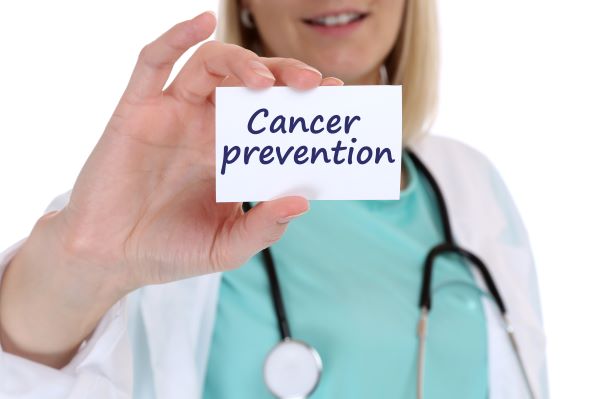
Why are we focusing on cancer prevention?
Cancer was one of the top health concerns in the 2023 Community Health Assessment and became a priority in our Community Health Improvement Plan.
In 2024, Iowa continues to have the 2nd highest and fastest growing rate of new cancers in the U.S. To reduce your risk of cancer, it is important to reduce your exposure to risk factors that you have control over.
Screening is also important. Getting screening tests regularly may find breast, cervical, colorectal (colon), and lung cancers early, when treatment is likely to work best.
Click here to find basic information and statistics about some of the most common cancers in the United States.
Cancer Risk Factors
Tobacco use
Tobacco use can cause cancer almost anywhere in your body. Quitting can lower your risk. Learn more here.
Overweight and obesity
Being overweight or having obesity are linked with a higher risk of getting 13 types of cancer. These cancers make up 40% of all cancers diagnosed in the United States each year. Learn more about:
Drinking alcohol
Drinking alcohol raises your risk of getting 6 kinds of cancer. All alcoholic drinks are linked with cancer. Any amount of alcohol reduction is likely to reduce your risk of cancer. Learn more about alcohol and cancer here.
HPV
Human papillomavirus (HPV) causes almost all cervical cancers and several other kinds of cancer. HPV-related cancer incidence is high in Iowa, and impacts both men and women. The good news is we have a safe, effective vaccine that can prevent 90% of the 6 cancers caused by HPV including: cervical, vaginal, vulvar, anal, penile, and throat cancer. Learn more here. Public Health has the HPV vaccine, visit our Immunizations page to learn more.
Ultraviolet (UV) radiation
Skin cancer is the most common form of cancer in the United States. Most skin cancers are caused by too much exposure to ultraviolet (UV) rays which can damage skin cells. UV rays come from the sun, tanning beds, and sunlamps.
To lower your risk of getting skin cancer, you can protect your skin from UV rays from the sun, and avoid artificial sources of UV exposure like tanning beds and sunlamps. Learn more here.
Family health history
Your family health history may also cause you to have a higher cancer risk. Learn more about understanding your family’s cancer risk here.
Cancer Screening Tests
Breast cancer
Mammograms are the best way to find breast cancer early, when it is easier to treat and before it is big enough to feel or cause symptoms.
Cervical cancer
The HPV test and the Pap test can help prevent cervical cancer or find it early, when the chance of being cured is very high.
Colorectal (colon) cancer
Colorectal cancer almost always develops from precancerous polyps (abnormal growths) in the colon or rectum. Screening tests can find precancerous polyps, so they can be removed before they turn into cancer. Screening tests also can find colorectal cancer early, when treatment works best.
Lung cancer
The US Preventive Services Task Force recommends yearly lung cancer screening with low-dose computed tomography (LDCT) for people who:
- Have a history of heavy smoking, and
- Smoke now or quit within the past 15 years, and
- Are between 50 and 80 years old.
Paying for Cancer Screenings
Medicare, Medicaid, and most private insurance plans are required to cover preventive services like cancer screenings under the Affordable Care Act. If you’re not sure what your insurance plan covers, ask the screening facility to check, or you can call your insurance provider and ask.
You may qualify for a free or low-cost mammogram or cervical cancer screening test through the Care For Yourself program if you are:
- 21 – 64 years old
- Have no insurance, insurance that doesn’t cover certain services, or your out-of-pocket deductible is unaffordable
- Have a monthly income of $3,137 (add $1,121 for each additional household member).
Call Angie at 319-385-0779 to find out more!
